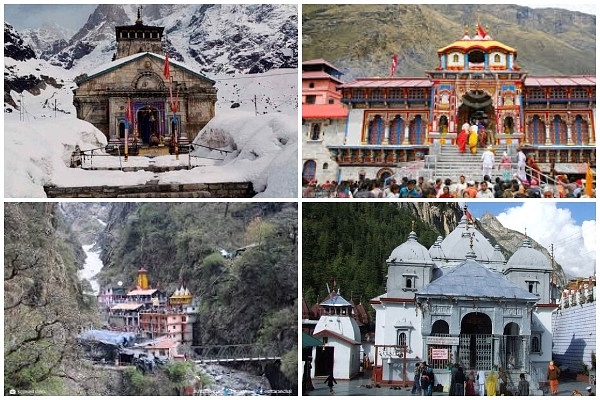
Uncertainty Over Char Dham Yatra Amid The Covid-19 Crisis; Uttarakhand Stares At Massive Economic Loss
Deliberations are under way over the quarantining of the Rawals — the traditional priests of the shrines who are from south India.
As the fight against Covid-19 continues amid the nationwide lockdown, Uttarakhand is looking at the needs and aspects of quarantining a specific group of people.
The doors of the four holy abodes — Yamunotri, Gangotri, Badrinath and Kedarnath — are scheduled to open during the last week of April.
Decision-making is underway, as per reports, on the protocol surrounding the Rawals who are meant to be at the four abodes for the ceremonial opening of the doors of the abodes, which remain shut during winter. The opening of the doors is when the rituals and worship resume at the four abodes.
The proverbial ‘Lakshman Rekha’, — the limits drawn for social distancing for each citizen as described by Prime Minister Narendra Modi — is expected to keep people behind closed doors during the nationwide lockdown in the fight against Covid-19.
The kapaats (doors) of the Char Dhams will be flung open to keep with tradition.
The state is looking at the possibility of quarantining the Rawals, who are supposed to arrive from the southern states.
The Rawals, the Nayab Rawals and Sevadaars, are the backbone of the worship and rituals performed at the Char Dham.
Decisions are underway on when they should arrive, so as to give the entire process a timeline for necessary steps towards their quarantining.
While the doors of the Yamunotri and Gangotri dhams are scheduled to open on 26-27 April, the doors of Badrinath and Kedarnath dhams are scheduled to open on 29-30 April.
According to officials of the Char Dham Vikas Parishad, suggestions are pouring in on the spots for the quarantining of the Rawals.
The rituals associated with the opening of the kapaats (doors) will see minimal strength in participation in the wake of the spread of the virus.
People in the upper parts of the state largely depend on the Char Dham Yatra for their livelihoods. Char Dham-related tourism is the backbone of the economy in the region.
This report mentions that it is said to be the basis for Rs 12,000 crore-worth of activity, which spurs livelihood and business in the region. The Yatra peaks in May and June.
With the nationwide lockdown extended till 3 May, all eyes are on the decisions that will come from the state.
There has been no decision from the government on the Char Dham Yatra yet, but according to the NBT report, many bookings made for the Yatra have been cancelled in the wake of the Covid-19 crisis.